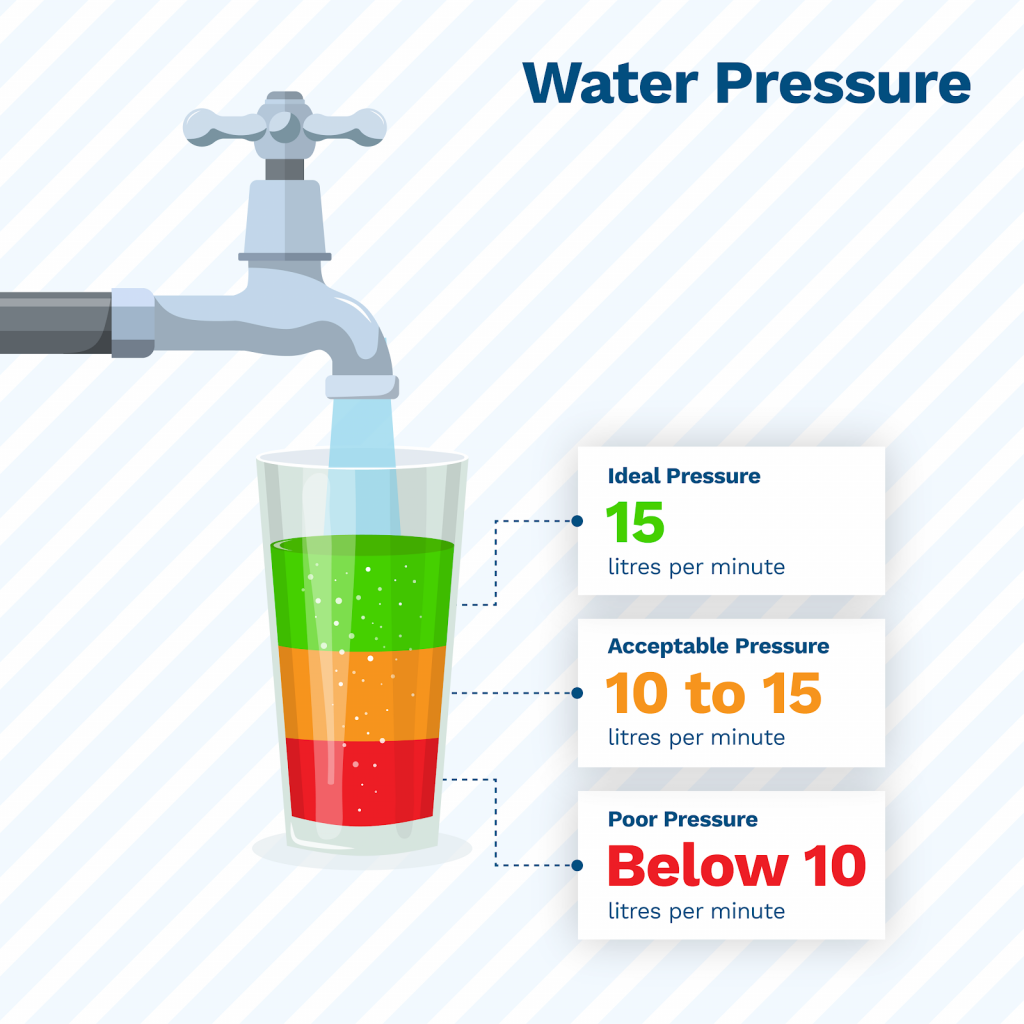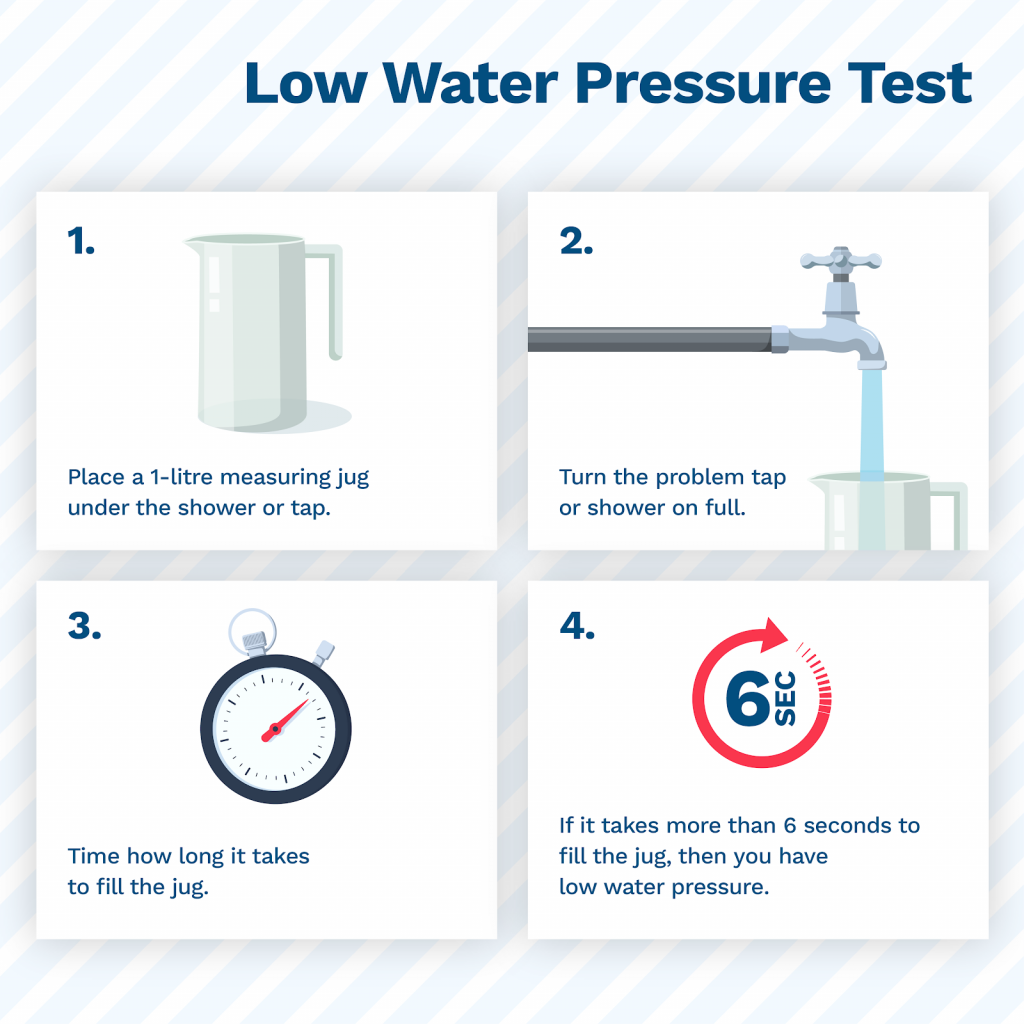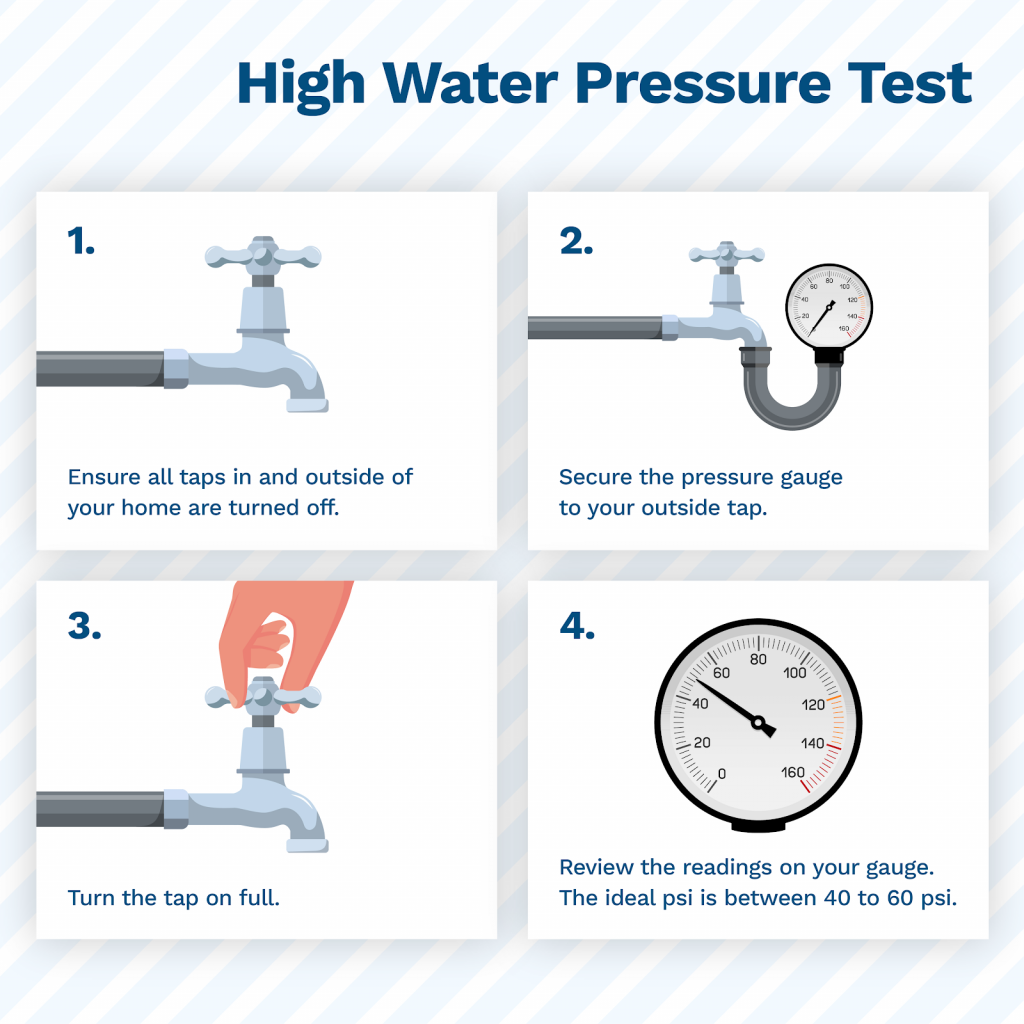How to Test Water Pressure (Expert Guide)
Understanding your water pressure can be vital to both the health of your plumbing system and the health of your mind (as you’ll find out!) Low and high water pressure are very common shower problems, so we've got you covered.
If your water pressure is too high, you risk damaging your home plumbing system every time you turn on a tap. If your water pressure is too low, you risk your sanity as you try to get a decent shower in the morning.
But, if this is your first time dealing with a water pressure issue, you may be wondering:
- What should my water pressure be?
- How do I test my water pressure?
- How do I increase or reduce my water pressure?
To help you find out, we’ve put together this simple guide.
Covering everything you need to know about flow, pressure and water, you’ll be back to blissful (mind healing) showers in no time.
What should my water pressure be?
Ideal water pressure is over 15 litres of water per minute. That would be classed as good, acceptable water pressure.
Anything between 10 to 15 litres per minute is acceptable. However, when you start to get closer to 10 litres per minute, it will start to get noticeably weaker.
Below 10 litres is considered poor. This will usually be quite obvious when showering, filling a bath or trying to wash the pots, as it will take considerable time to fill.
Now, the tricky bit is knowing when your water pressure is too high. Generally, only a certain amount of water will be able to get through a water outlet (tap or shower) at anyone time. That will make it difficult to measure from a faucet.
For high water pressure, you will need to refer to a water pressure gauge . Ideally, your home water pressure should not exceed 60psi .
How do I test my water pressure?
OK, so you understand your ideal water pressure. Now, how do you test it? Simple, follow the relevant steps below 👇
Testing Low Water Pressure
Before you start, you’ll need some tools to complete your test. These include:
- A measuring jug (preferably a 1-litre jug but anything above or below works too)
- Timer (a timer on a phone usually works, however, be careful around water with your phone)
- Calculator (again, usually on your phone)
Step 1:
Place a 1-litre measuring jug under the shower or tap.
Step 2:
Turn the problem tap or shower on full.
Step 3:
Time how long it takes to fill the jug.
Step 4:
If it takes more than 6 seconds to fill the jug, then you have low water pressure.
Help - I don’t have a 1-litre jug!
If you don’t have a 1-litre jug (they often vary in size, some can be 500ml, 800ml), then you can use some simple maths to calculate the water pressure.
Simply, take the amount of water in the jug in litres and multiply this by 10. This will give you your flow rate in litres per minute.
For example, if you have a 500ml jug, that would be 0.5 litres x 10 = 5 litres per minute.
Simple.
Remember, your water pressure should be at least 10 litres per minute. You’d like to be above 15 for ideal pressure, but anywhere between 10 and 15 is acceptable. Anything below, you need help.
Testing High Water Pressure
Before you start, you’ll need one tool to complete your test. This tool is a:
Water Pressure Gauge (this can be purchased from any hardware store)
Step 1:
Ensure all taps in and outside of your home are turned off
Step 2:
Secure the pressure gauge to your outside tap
Step 3:
Turn the tap on full. It needs to be operating on full to take an accurate reading.
Step 4:
Review the readings on your gauge. The ideal psi is between 40 to 60 psi, anything over 60 should be looked at by a plumber. Anything below 30 and you likely have a leak.
How do I improve or reduce my water pressure?
This is where it gets quite complex as there could be a variety of reasons your pressure is too low or too high.
Free Advice
If you’re struggling for advice, ring our dedicated experts on 0800 112 3134 or 0333 577 3134. We’re open Monday to Friday 07:00 - 17:30 and Saturday 08:30 - 12:30.




